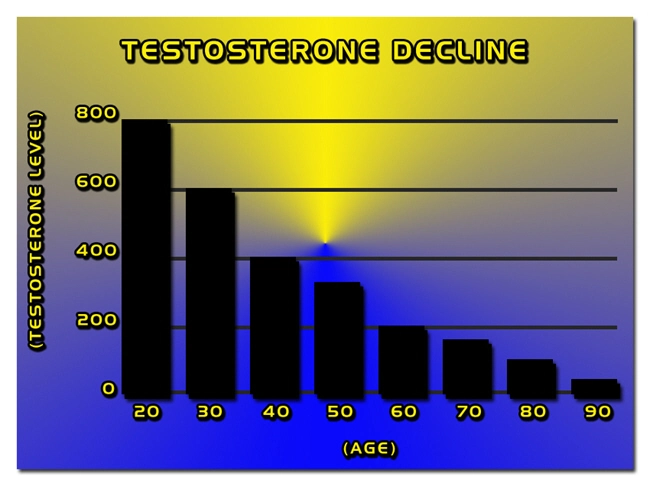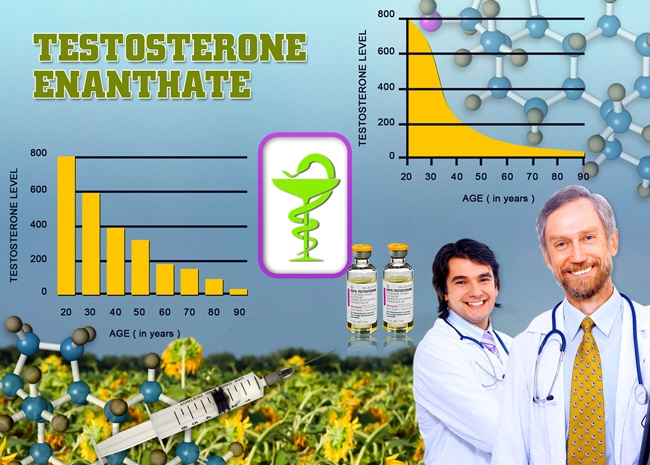
Introduction
Testosterone, the primary male sex hormone, plays a crucial role in various physiological processes, including muscle mass maintenance, bone density, and libido. Recent research has begun to explore the relationship between low testosterone levels and the increased susceptibility to infectious diseases among American men. This article delves into the findings of these studies, shedding light on the potential health implications and preventive measures.
Understanding Low Testosterone
Low testosterone, clinically known as hypogonadism, is characterized by testosterone levels below 300 ng/dL. Symptoms may include reduced libido, fatigue, and decreased muscle mass. While often associated with aging, low testosterone can affect men of all ages due to various factors such as obesity, chronic diseases, and lifestyle choices.
The Connection to Infectious Diseases
Emerging research indicates that men with low testosterone levels may be at a higher risk of contracting infectious diseases. A study published in the *Journal of Clinical Endocrinology & Metabolism* found that men with hypogonadism had a higher incidence of respiratory infections compared to those with normal testosterone levels. The study suggests that testosterone may play a role in modulating the immune response, thereby affecting the body's ability to fight off pathogens.
Mechanisms Behind the Increased Risk
The exact mechanisms linking low testosterone to increased infectious disease risk are still under investigation. However, several theories have been proposed. Testosterone is known to influence the production and function of immune cells, such as T-cells and macrophages, which are essential for combating infections. Low levels of testosterone may impair these immune responses, making the body more susceptible to pathogens.
Additionally, testosterone has anti-inflammatory properties, which could be diminished in men with hypogonadism. Chronic inflammation is a known risk factor for various infections, and reduced testosterone levels might exacerbate this condition, further increasing vulnerability to diseases.
Clinical Implications and Preventive Measures
The findings from these studies have significant clinical implications for American men, particularly those diagnosed with low testosterone. Healthcare providers should consider screening for hypogonadism in patients with recurrent infections, as testosterone replacement therapy (TRT) might offer a dual benefit of improving overall health and reducing infection risk.
Preventive measures are also crucial. Maintaining a healthy lifestyle, including regular exercise, a balanced diet, and adequate sleep, can help optimize testosterone levels. Additionally, managing chronic conditions such as diabetes and obesity, which are linked to low testosterone, can mitigate the risk of infectious diseases.
Future Research Directions
While the connection between low testosterone and infectious disease risk is becoming clearer, further research is needed to fully understand the underlying mechanisms and to develop targeted interventions. Longitudinal studies tracking testosterone levels and infection rates over time could provide more definitive evidence. Moreover, exploring the efficacy and safety of TRT in reducing infection risk in hypogonadal men is a promising area of research.
Conclusion
The link between low testosterone and increased susceptibility to infectious diseases in American men highlights the importance of monitoring and managing testosterone levels. By understanding and addressing this relationship, healthcare providers can better protect their patients from the risks associated with hypogonadism. As research continues to evolve, the hope is that more effective strategies will emerge to enhance the health and well-being of American men.
Contact Us Today For A Free Consultation
Dear Patient,
Once you have completing the above contact form, for security purposes and confirmation, please confirm your information by calling us.
Please call now: 1-800-380-5339.
Welcoming You To Our Clinic, Professor Tom Henderson.

- Environmental Toxins Linked to Low Testosterone in American Men: Impacts and Mitigation Strategies [Last Updated On: February 28th, 2025] [Originally Added On: February 28th, 2025]
- Low Testosterone: Symptoms, Risks, and Comprehensive Management Strategies for American Males [Last Updated On: March 17th, 2025] [Originally Added On: March 17th, 2025]
- Alcohol's Impact on Testosterone: Risks and Strategies for American Men [Last Updated On: March 17th, 2025] [Originally Added On: March 17th, 2025]
- Low Testosterone's Impact on Muscle Mass and Strength in American Males [Last Updated On: March 17th, 2025] [Originally Added On: March 17th, 2025]
- Chronic Illnesses and Low Testosterone: Impacts and Management in American Males [Last Updated On: March 19th, 2025] [Originally Added On: March 19th, 2025]
- Low Testosterone's Impact on Cognitive Function in American Men: Risks and Interventions [Last Updated On: March 19th, 2025] [Originally Added On: March 19th, 2025]
- Low Testosterone in American Men: Impact on Energy and Treatment Options [Last Updated On: March 19th, 2025] [Originally Added On: March 19th, 2025]
- Vitamin D's Role in Boosting Testosterone Levels in American Men: A Comprehensive Overview [Last Updated On: March 20th, 2025] [Originally Added On: March 20th, 2025]
- Economic Burden of Low Testosterone on American Men's Health and Healthcare System [Last Updated On: March 20th, 2025] [Originally Added On: March 20th, 2025]
- Low Testosterone and Mood Disorders: Impacts and Management for American Men [Last Updated On: March 21st, 2025] [Originally Added On: March 21st, 2025]
- Weight Loss Boosts Testosterone: Strategies for American Males with Low T [Last Updated On: March 21st, 2025] [Originally Added On: March 21st, 2025]
- Low Testosterone and Diabetes: Interlinked Challenges and Management Strategies for Men's Health [Last Updated On: March 21st, 2025] [Originally Added On: March 21st, 2025]
- Low Testosterone Effects on Skin Health in American Men: Causes and Solutions [Last Updated On: March 22nd, 2025] [Originally Added On: March 22nd, 2025]
- Managing Low Testosterone in Aging American Men: Symptoms, Treatments, and Holistic Approaches [Last Updated On: March 22nd, 2025] [Originally Added On: March 22nd, 2025]
- Low Testosterone and Osteoporosis: Risks, Diagnosis, and Management in American Males [Last Updated On: March 22nd, 2025] [Originally Added On: March 22nd, 2025]
- Boosting Testosterone in American Men: The Power of Physical Activity and Lifestyle [Last Updated On: March 23rd, 2025] [Originally Added On: March 23rd, 2025]
- Low Testosterone and Prostate Health: Understanding Risks and Management Strategies [Last Updated On: March 23rd, 2025] [Originally Added On: March 23rd, 2025]
- Low Testosterone and Hair Loss: Mechanisms and Management in American Males [Last Updated On: March 23rd, 2025] [Originally Added On: March 23rd, 2025]
- Low Testosterone's Impact on Immune Function in American Males: Insights and Strategies [Last Updated On: March 23rd, 2025] [Originally Added On: March 23rd, 2025]
- Low Testosterone: Symptoms, Impact, and Treatment Options for American Men [Last Updated On: March 23rd, 2025] [Originally Added On: March 23rd, 2025]
- Medications Impacting Testosterone: What American Men Need to Know and Manage [Last Updated On: March 24th, 2025] [Originally Added On: March 24th, 2025]
- Sleep Apnea's Impact on Testosterone Levels in American Males: A Comprehensive Analysis [Last Updated On: March 24th, 2025] [Originally Added On: March 24th, 2025]
- Low Testosterone's Impact on American Males' Body Composition and Health [Last Updated On: March 24th, 2025] [Originally Added On: March 24th, 2025]
- Low Testosterone and Heart Disease Risk in American Men: Current Insights and Interventions [Last Updated On: March 24th, 2025] [Originally Added On: March 24th, 2025]
- Chronic Pain and Low Testosterone: A Critical Health Issue for American Males [Last Updated On: March 24th, 2025] [Originally Added On: March 24th, 2025]
- Herbal Supplements for Low Testosterone: Benefits and Considerations for American Men [Last Updated On: March 24th, 2025] [Originally Added On: March 24th, 2025]
- Environmental Estrogens and Declining Testosterone in American Males: A Public Health Concern [Last Updated On: March 25th, 2025] [Originally Added On: March 25th, 2025]
- Low Testosterone's Impact on Emotional Wellbeing in American Men: Insights and Guidance [Last Updated On: March 25th, 2025] [Originally Added On: March 25th, 2025]
- Dietary Impact on Testosterone Levels in American Men: Insights and Recommendations [Last Updated On: March 25th, 2025] [Originally Added On: March 25th, 2025]
- Managing Low Testosterone in Aging Men: Symptoms, Treatments, and Lifestyle Strategies [Last Updated On: March 25th, 2025] [Originally Added On: March 25th, 2025]
- Zinc's Role in Boosting Testosterone Levels in Aging American Men [Last Updated On: March 25th, 2025] [Originally Added On: March 25th, 2025]
- Chronic Inflammation's Impact on Testosterone Levels in American Males [Last Updated On: March 25th, 2025] [Originally Added On: March 25th, 2025]
- Testosterone's Role in Male Libido: Understanding, Diagnosing, and Treating Low Levels [Last Updated On: March 25th, 2025] [Originally Added On: March 25th, 2025]
- Low Testosterone and Depression in American Men: Links, Impacts, and Management Strategies [Last Updated On: March 25th, 2025] [Originally Added On: March 25th, 2025]
- Low Testosterone and Metabolic Syndrome: Risks and Strategies for American Men [Last Updated On: March 26th, 2025] [Originally Added On: March 26th, 2025]
- Genetic Factors in Low Testosterone Among American Males: Insights and Implications [Last Updated On: March 26th, 2025] [Originally Added On: March 26th, 2025]
- Smoking's Impact on Testosterone Levels in American Men: A Comprehensive Analysis [Last Updated On: March 26th, 2025] [Originally Added On: March 26th, 2025]
- Low Testosterone and Thyroid Disorders: Exploring Risks and Treatment in American Men [Last Updated On: March 26th, 2025] [Originally Added On: March 26th, 2025]
- Low Testosterone and Anemia: Impacts and Management in American Men [Last Updated On: March 26th, 2025] [Originally Added On: March 26th, 2025]
- Shift Work's Impact on American Men's Testosterone Levels and Health [Last Updated On: March 26th, 2025] [Originally Added On: March 26th, 2025]
- Liver Health and Testosterone: Vital Connections and Management Strategies for American Men [Last Updated On: March 26th, 2025] [Originally Added On: March 26th, 2025]
- Hormonal Imbalance and Low Testosterone: Causes, Symptoms, and Treatment Options for American Males [Last Updated On: March 27th, 2025] [Originally Added On: March 27th, 2025]
- Chronic Stress and Low Testosterone: Impacts and Strategies for American Men [Last Updated On: March 27th, 2025] [Originally Added On: March 27th, 2025]
- Respiratory Health's Impact on Testosterone Levels in American Males: Management Strategies [Last Updated On: March 28th, 2025] [Originally Added On: March 28th, 2025]
- Low Testosterone and Insulin Resistance: A Growing Concern for American Men's Health [Last Updated On: March 28th, 2025] [Originally Added On: March 28th, 2025]
- Low Testosterone Linked to Increased Kidney Disease Risk in American Men [Last Updated On: March 28th, 2025] [Originally Added On: March 28th, 2025]
- Low Testosterone Linked to Increased Autoimmune Disease Risk in American Men [Last Updated On: March 28th, 2025] [Originally Added On: March 28th, 2025]
- Nutritional Deficiencies Impacting Testosterone Levels in American Males: Zinc, Vitamin D, Magnesium [Last Updated On: March 29th, 2025] [Originally Added On: March 29th, 2025]
- Low Testosterone Linked to Neurological Disorders in American Men: Research and Implications [Last Updated On: March 30th, 2025] [Originally Added On: March 30th, 2025]
- Gut Microbiome's Impact on Testosterone Levels in American Males: A Comprehensive Review [Last Updated On: March 30th, 2025] [Originally Added On: March 30th, 2025]
- Dental Health's Impact on Testosterone Levels in American Males: Emerging Insights [Last Updated On: March 31st, 2025] [Originally Added On: March 31st, 2025]
- Low Testosterone Linked to Dermatological Issues in American Men: Research and Management [Last Updated On: March 31st, 2025] [Originally Added On: March 31st, 2025]
- Low Testosterone Linked to Increased Eye Disorder Risk in American Men [Last Updated On: March 31st, 2025] [Originally Added On: March 31st, 2025]
- Reproductive Health's Impact on Testosterone Levels in American Males: A Comprehensive Analysis [Last Updated On: April 1st, 2025] [Originally Added On: April 1st, 2025]
- Low Testosterone Linked to Musculoskeletal Disorders in American Men: Interventions and Insights [Last Updated On: April 2nd, 2025] [Originally Added On: April 2nd, 2025]
- ENT Health and Testosterone: Managing Conditions to Boost Hormonal Balance in Males [Last Updated On: April 4th, 2025] [Originally Added On: April 4th, 2025]
- Low Testosterone and Urological Health: Risks, Detection, and Management Strategies [Last Updated On: April 5th, 2025] [Originally Added On: April 5th, 2025]
- Low Testosterone Linked to Hematological Risks in American Men: Insights and Management [Last Updated On: April 5th, 2025] [Originally Added On: April 5th, 2025]
- Understanding and Managing Low Testosterone: A Holistic Endocrine Approach [Last Updated On: April 6th, 2025] [Originally Added On: April 6th, 2025]
- Immune System's Role in Testosterone Levels: Impacts and Interventions for American Males [Last Updated On: April 8th, 2025] [Originally Added On: April 8th, 2025]
- Low Testosterone Linked to Increased Psychiatric Risks in American Men: Mechanisms and Implications [Last Updated On: April 9th, 2025] [Originally Added On: April 9th, 2025]
- Low Testosterone and Surgical Risks in American Men: Implications and Recommendations [Last Updated On: April 10th, 2025] [Originally Added On: April 10th, 2025]
- Rheumatological Conditions and Low Testosterone: Impacts and Management Strategies [Last Updated On: April 11th, 2025] [Originally Added On: April 11th, 2025]
- Cancer's Impact on Testosterone Levels in American Males: Mechanisms and Management [Last Updated On: April 13th, 2025] [Originally Added On: April 13th, 2025]









